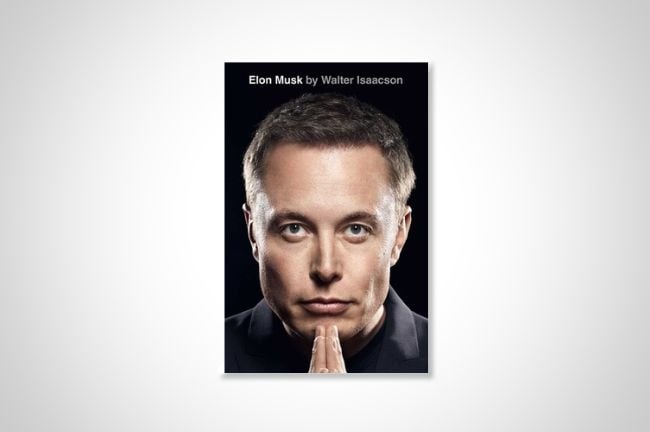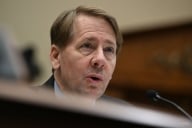You have /5 articles left.
Sign up for a free account or log in.

Simon & Schuster
Elon Musk by Walter Isaacson
Published in September 2023
Last November, I wrote “8 Reasons Why Elon Musk Should Be Your University’s Next President.”
I intended that piece as satire. Not every reader got the joke.
The opening lines of that 2022 post read,
“The brilliant and inspiring leadership that Elon Musk has brought to Twitter since purchasing the company for $44 billion is ample evidence (as if we needed more) that universities should be run more like companies.
“What better way to break through the inefficiencies and outdated thinking of traditional academic leadership than to not only adopt Musk’s operational style as our own but to recruit Musk as the next president of our university?”
Having just finished reading Walter Isaacson’s compelling, even-handed and expertly crafted biography, I’ve been thinking more about what Musk’s leadership style tells us about academic culture.
Isaacson seems to have had full access to Musk, his employees, ex-wives and family members. The biographer shadowed Musk for a couple of years and was in the room as the Twitter acquisition debacle unfolded.
At the heart of the Elon Musk story, and where I think there may be lessons for universities and university leaders, is a question. Can decent humans change the world? Isaacson’s answer is mostly no.
What is clear from Musk’s life, at least so far, is that:
- He has changed the world (mainly for the better).
- None of us would want to emulate Musk in how we conduct our professional or personal lives. Elon Musk is an immeasurably valuable and successful entrepreneur and a terrible role model.
When I say immensely valuable, I mainly refer to his role in shifting the entire automotive ecosystem to electric. Say what you want about the damage that Musk has done to Twitter or the messiness of his personal life (all deeply recounted in Isaacson’s biography); Tesla, under Musk’s leadership, has changed the electric vehicle game.
Electric vehicles would have arrived eventually, but their entrance would have been years later if it were not for Tesla. And Tesla would not be where it is today without Musk’s willingness to take risks and push those around him to work insane hours.
Reading Isaacson’s biography has also enhanced my interest in following SpaceX. Before reading the book, I was turned off by billionaires building rockets. What the book makes clear, however, is that despite Musk’s long-term Mars goals (or fantasies, as Mars is a terrible planet for humans), SpaceX is very much a viable—and maybe even essential—business. In the decades when NASA became frozen and the U.S. lost its ability to send satellites and people to orbit, SpaceX innovated to make rockets cheaper (and reusable), safer and more reliable.
The most interesting higher ed lens regarding Musk’s leadership style is not Tesla or SpaceX but Twitter. While the Twitter story may not be over, it is hard to argue with the conclusion that Musk’s ownership has done significant damage to the platform. The leadership style that enabled the creation of a world-changing electric car company and the (seemingly successful) privatization of orbital rockets has been a disaster at the media and tech company that was Twitter. (Or X, or whatever it calls itself.)
Thankfully, it is unlikely that a new university president who emulates the leadership style of Elon Musk could do as much damage to their institution as Musk has done to Twitter. Nonprofit universities are built (although not exclusively) on systems of distributed leadership. Power is diffused at colleges and universities, meaning top academic leaders must lead (at least partly) through coalition building and persuasion.
No president could as easily fire 80 percent of the faculty and staff within months of taking the role as Musk did at Twitter following his acquisition. But look at things the other way. In requiring that anyone who works at Twitter be “hard-core,” Musk has been able to remake the company’s organization and culture. The site still runs, even with only 20 percent of the staff.
Pre-Musk, Twitter’s culture would have been familiar to a university employee. There was an ethos of tolerance and support, with corporate policies promoting diversity, equity and employee well-being. Under Musk, all that disappeared.
An Elon Musk–run university, or a university run by someone adopting Musk’s style and methods, might create dramatically favorable outcomes. Costs could be slashed, potentially allowing credentials to be offered at significantly lower prices.
Imagining a university going through a similar transformation as Twitter under a leader like Musk is almost unimaginable. The Musk leadership playbook would kill the academic culture and likely force almost everyone working at the university to leave.
What would change in a Musk-like university?
- The end of hybrid and remote work. Musk reversed Twitter’s “permanent” work-from-anywhere policy. He expects employees to be on-site at least 40 hours a week in all his companies. Hybrid and remote work has become the norm for many higher education jobs. What would it mean if a university announced everyone had to be in the office full-time starting next week?
- Forty hours a week is just a start. Musk works all the time—nights, weekends and holidays. If you want to survive at SpaceX, Twitter, Tesla or his other companies, you must match your work schedule to Musk’s. Today, many academics work very long weeks. Among many professors and top administrators, 60 hours per week is the norm, and 80 hours is not unusual. But what if everyone at the university worked 60 to 80 hours per week? How many university employees would stay in the face of those demands?
- Wellness is no longer a thing. The culture at a Musk-owned company is that everyone should behave like Elon Musk. Beyond a proliferation of black T-shirts, this means embracing hard-core work as the ultimate value. Work-life balance is not a thing at Tesla, SpaceX or Twitter. It is all work, all the time. How many academic leaders would require a commitment to hard-core work for university employees, as Musk famously required of those working at Twitter? In an age of adjunctification and recognizing the persistence of the academic caste system, it is an open question if universities are structured in a way to achieve wellness for all employees. If an acolyte of Elon Musk were to become university president, even the rhetoric around employee wellness would disappear.
The question, however, is not if a Musk-type leader will come to higher education but when.
We are likely at a point where there is enough societal dissatisfaction with the rising costs and stagnant outcomes of postsecondary education that someone, somewhere, will take an Elon Musk–like approach to transforming a university.
Likely, it will happen somewhere in Florida. (Maybe it already is.)
What are you reading?








